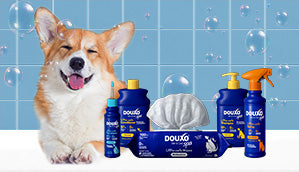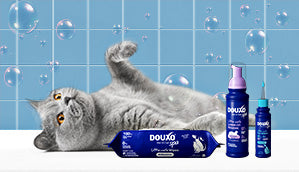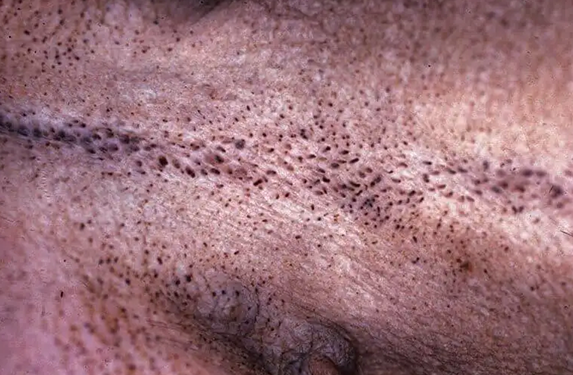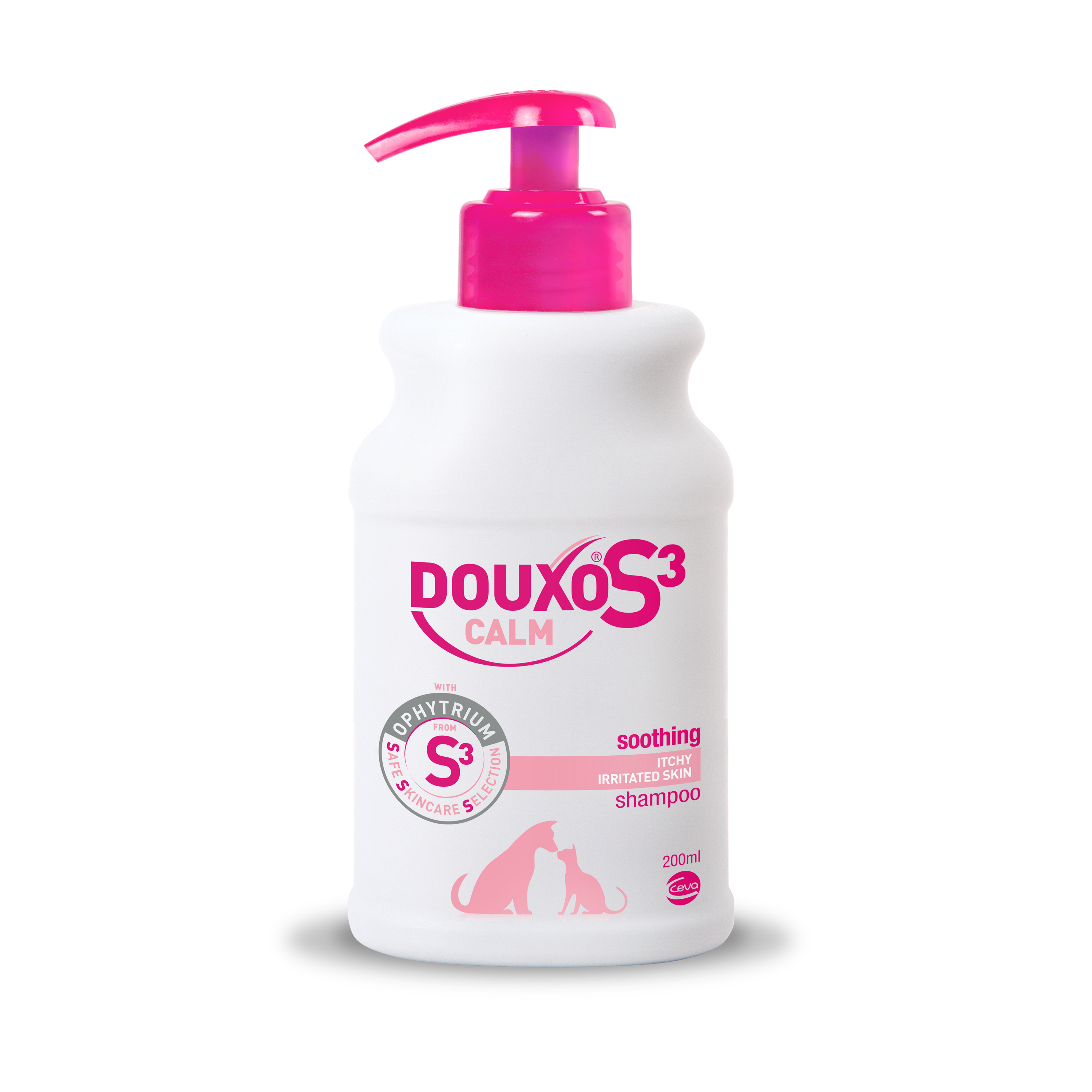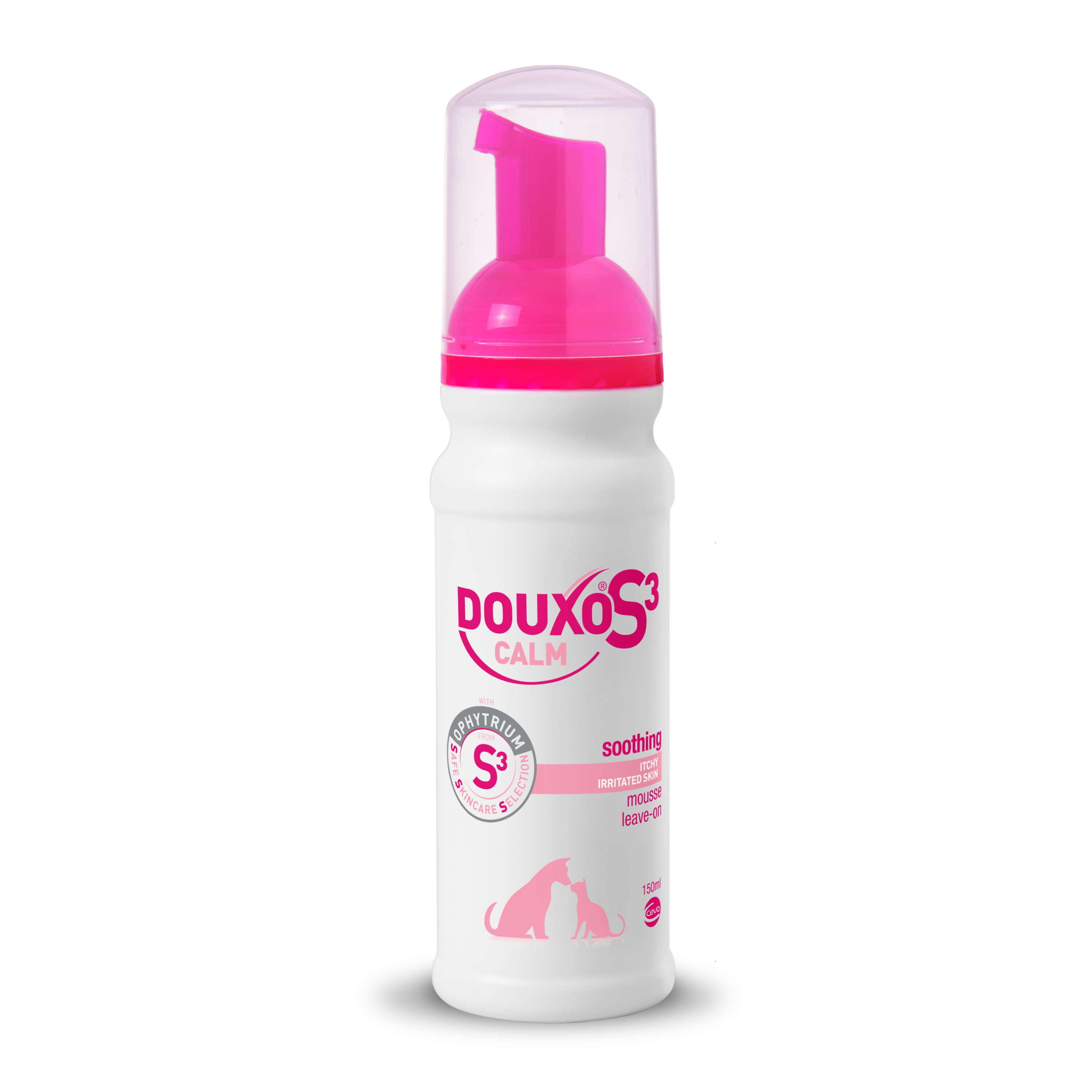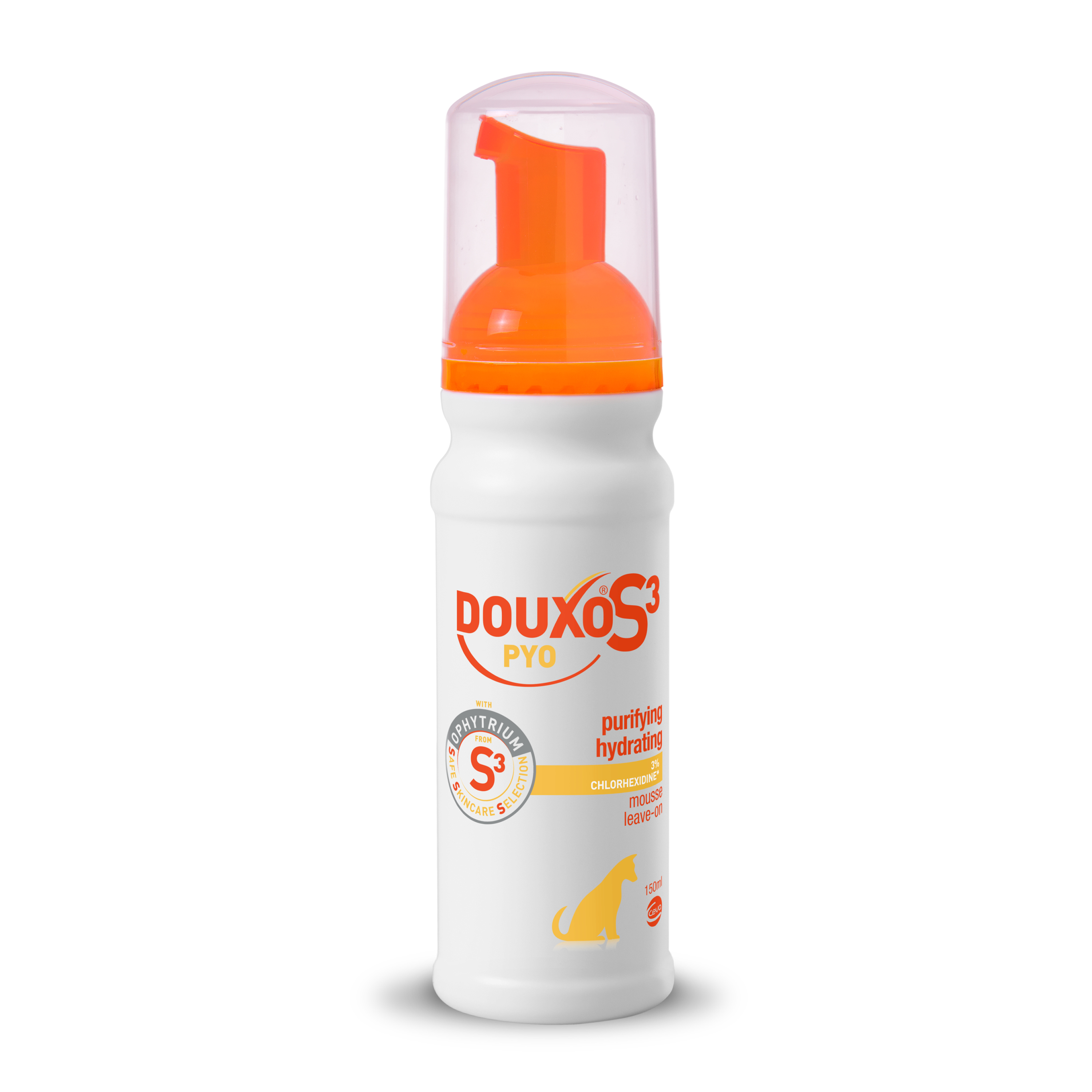Key Points
Understanding itchiness in dogs
Dog itch severity varies between dogs and can even affect play and sleep in some ca...
Dog itch severity varies between dogs and can even affect play and sleep in some cases. Causes include allergies, parasites or infections. A vet diagnosis will help guide treatment.
How to relieve itchiness
The causes of itchiness are complex and require a combination of topical skin care ...
The causes of itchiness are complex and require a combination of topical skin care routines, the correct foods and medications. Discussing this with a vet who has an interest in dermatology will ensure that you get the best outcomes.
Treating underlying causes
In some cases it can be impossible to identify a single cause and treating multiple...
In some cases it can be impossible to identify a single cause and treating multiple factors is common. Regular parasite control and allergy management are essential. Treating any secondary infections caused by the scratching is vital to managing flare ups.
Preventing skin damage
Use physical barriers like buster collars or pet shirts to prevent excessive skin d...
Use physical barriers like buster collars or pet shirts to prevent excessive skin damage during itching. Trim nails and monitor your pets skin for signs they have broken it with scratching or overgrooming.
If your dog has itchy skin, you will know all about it! Keeping you awake at night as they scratch and lick constantly. It can drive both of you mad.
It is important to recognise that this is affecting your dog's quality of life and to start treatment as soon as possible. The key to success is consistency over the long-term!
How serious is itching?
It depends on the cause, the intensity and the frequency of the itchiness. It can become very serious when they are unable to enjoy life or if they develop infections due to the constant scratching. Dogs with allergic skin (a common cause of itching) will also often develop ear infections which are extremely painful and can lead to deafness and changes in behaviour, like aggression. One of the main signs of itchy skin is scratching, but for some dogs it is not possible to scratch normally so you may also notice your dog:
Overgrooming, excessively licking or even biting at an area
Rubbing their body on surfaces for those hard-to-reach places like faces, bottoms and sides of the body
Head shaking
Scooting (dragging their bottoms along the ground)
The irritation can become so severe that they just can’t stop scratching and will often cause more serious damage with their claws and teeth. The skin then becomes infected and makes the itching even worse.
Where possible, the cause of itch needs to be investigated in order to control it effectively. The most common causes are flea bites (you might not always see the fleas), grass and/or pollen allergies and often, a skin barrier that isn't as effective as it should be. To rule out all the causes of itchy skin, it is important to seek advice from your veterinarian.
How can you relieve itching?
Many different skin conditions can cause dogs to itch and some, like skin infections, won’t respond very well to only soothing measures. That is why addressing the cause is so important. A big part of managing itchy skin in the long-term is to ensure that the outer layer of skin is soothed, that the normal bacteria on the skin is balanced and that you help to repair faulty skin barriers. This part of itch management can often be achieved using topical products. If the signs don’t improve or worsen while using a topical product, you definitely need to speak to your vet as your dog will require additional support.
Topical skin care eases itching, balances the microbiome and strengthens the skin barrier
Topical solutions provide rapid relief from itchy, irritated skin, bringing ingredients directly to where they are needed. Shampoos cleanse the skin, washing away dirt, debris and allergens. Mousses play a valuable role as they are not washed off, meaning the ingredients are in contact with the skin for longer, improving performance. For the best results, it’s always good to have a three-pronged attack when dealing with the skin. Not only do we need to soothe and protect the outer layers, but we also want to nourish and strengthen the skin so it can do its job as the body’s main protector. Restoring the balance of the protective microbiome for a complete and healthy skin barrier is the final part of topical skin care.
DOUXO® S3 CALM products are scientifically proven (and recommended by veterinary dermatologists) to reduce inflammation of your dog’s skin, while strengthening the damaged skin barrier and preventing adhesion of potentially bad bacteria. DOUXO S3 CALM is available in a Shampoo or a leave-in Mousse for whole body application as well as Pads for use in smaller, delicate areas.
If you suspect that the skin is infected, you will need to use a shampoo or mousse that kills bacteria and yeast in addition to providing soothing and anti-itch properties. Your vet will be able to advise on whether using an anti-bacterial/anti-yeast shampoo or mousse is enough on its own or if your dog will require additional support to control the infection.
Other medications to reduce itching
Your vet may prescribe oral, injectable or topical medicine for your dog to provide immediate relief of symptoms. Depending on the product/s used, it can take hours to days to soothe your dog’s skin. While these medications are vital to improve your dog's comfort (and in some cases will be required lifelong), they do not address damaged skin barriers or rebalance the microbiome, so effective topical products used consistently for the long-term remain vital.
Treat the cause to soothe long-term
Once your vet has diagnosed the cause of your dog’s itchy skin you will work with them to develop a plan to manage it.
Effective parasite control
Maintaining regular, preventative parasite control is vital for all dogs to prevent itchy skin, and is even more important to those dogs who are sensitive to flea bites (flea allergy dermatitis). Don’t forget: treating other pets in the household and the environment is key to all-round control.
Allergies
If allergies are the cause of itchy skin, you will need to work with your vet to get the best outcome. Allergies in dogs fall into three main categories: flea bite allergies, environmental allergies (also called atopic dermatitis) such as pollen and grass, and food allergies. Many dogs have a combination of 2 or 3 of these.
With food allergies, the key to success is feeding a diet that does not contain the proteins that your dog is allergic to. Special diets that contain hydrolysed proteins are most likely to help your dog as your dog's body will not recognise the protein and so cannot cause a flare up. Food elimination trials require you to feed only a specific food for 8-12 weeks. Speak to your vet about what diets they recommend for a food trial. It is important to note that grain-free diets are NOT helpful for dogs with food allergies.
For dogs with environmental allergies (atopic dermatitis), it can sometimes be impossible to avoid the allergen. However, regular shampooing after they come back in from a walk can help remove excess pollen and allergens from their coat. Using a skin care product like DOUXO S3 also helps to build up a stronger skin barrier, making it harder for allergens to get through. In addition to topical skin care, medical treatments aim to reduce the level of itchiness and control the amount of inflammation the body produces. Atopic dermatitis can be managed but not cured, so long-term reduction in causes of flare ups becomes vital to reduce the amount of medications required.
There are four basic steps that we can take to manage dog allergies:
Avoid the allergens when possible (e.g. wash bedding often to minimise dust mites, use regular flea control, shampoo coats regularly to remove excess pollen and dust and avoid heavily scented products)
Avoid the allergens when possible (e.g. wash bedding often to minimise dust mites, use regular flea control, shampoo coats regularly to remove excess pollen and dust and avoid heavily scented products)
Topical skin care to sooth irritated skin, repair defective skin barriers and balance the skin microbiome
Topical skin care to sooth irritated skin, repair defective skin barriers and balance the skin microbiome
Medication to reduce the body's inflammatory response
Medication to reduce the body's inflammatory response
Feeding a diet designed for allergic dogs eg a hydrolysed protein diet that reduces flare ups
Feeding a diet designed for allergic dogs eg a hydrolysed protein diet that reduces flare ups
Allergies are a life-long condition and a treatment that works today may be less effective tomorrow as your dog is exposed to different allergens at different levels. This is normal, but it is common to feel discouraged and frustrated. Every dog is unique, every dog’s allergies are unique to them too, so the management plan will be unique to them and will change over time. The key to success is long-term consistency with the basics. Topical skin care products such as DOUXO® S3 CALM that are proven to reduce inflammation and repair the skin barrier alongside medications prescribed by your vet and the right food will help to reduce how often your dog has flare ups.
Secondary infections
Skin infections (bacterial, yeast or fungal) are usually secondary to another condition. Treatment of skin infections rely on four key components:
Eliminate the germs
Eliminate the germs
Relieve the pain, itching and inflammation
Relieve the pain, itching and inflammation
Restore the skin barriers
Restore the skin barriers
Manage the underlying cause
Manage the underlying cause
Managing infected skin often be achieved using topical products that contain antibacterial or anti-fungal ingredients. Relief of pain and inflammation can achieved by controlling the infection in addition to providing proven topical soothing ingredients. DOUXO® S3 PYO, available in Shampoo, Mousse and Pads, contains chlorhexidine 3%, well known for excellent antibacterial and antifungal efficacy, as well as Ophytrium to soothe the skin, strengthen the skin barrier and limit adhesion of potentially pathogenic bacteria.
To avoid reoccurrence of skin infections, it is important to identify and manage the underlying cause. Your vet will help with this. Once the infection is healed, you will need to continue to provide ongoing skin care to reduce the risk of it happening again. For dogs with ongoing ithcy skin, DOUXO S3 CALM is the ideal long-term skin care product.
How to prevent further damage to the skin
You might find it useful to provide a physical barrier between the skin and your dog's nails. The aim is to prevent the dog from tearing their skin while still satisfying their need to scratch at the area. This can be as simple as using a buster collar to protect the ears, head and neck area or use a pet shirt to cover and protect the body and stomach. Baby clothing also works well if you have any handy. Alternatively, you can protect the skin by making sure the nails are trimmed and kept smooth.
Remember to remove any coverings at least twice a day and check the underlying skin for redness or wetness. You can make a skin condition worse if it is kept covered for too long and gets wet for any reason.
We recommend
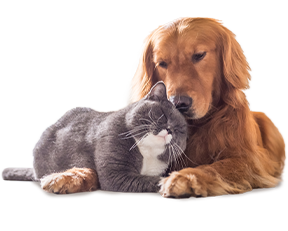
Find out the right product for your pet
Take the quizSafe for you and your pet
Approved by pets and families
Recommended by vets
Is your dog scratching or biting at their skin? Discover DOUXO® S3, the veterinarian-recommended solution for effectively relieving your dog's itchiness. Whatever the cause, our range of products, specially formulated for irritated and sensitive skin, includes skin care products to soothe and strengthen the skin barrier and balance the skin ecosystem. DOUXO® S3 is your long-term partner for addressing your dog's inflamed skin, repairing defective skin barriers, and helping them live their best lives.





